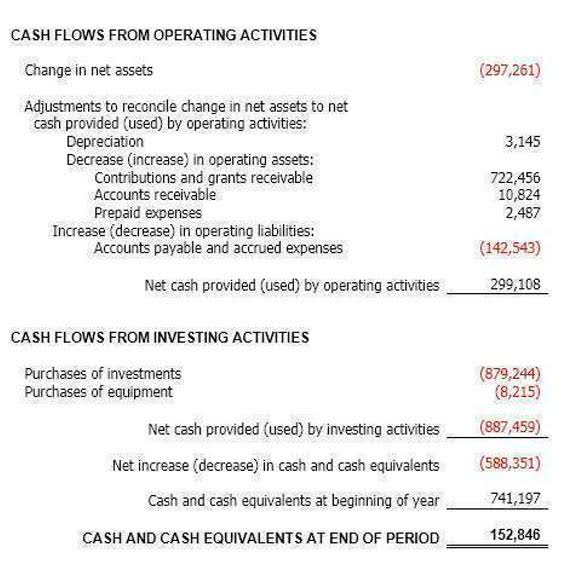

Your income statement should not record unearned revenue until it becomes ‘earned’ revenue when the service or product is delivered. Unearned revenue, also called deferred revenue or advanced payment, is money that has been paid to your business for goods or services that you have not yet delivered. Essentially, it’s a cash prepayment in exchange for the promise of goods or services. The adjusting entry for unearned revenue will depend upon the original journal entry, whether it was recorded using the liability method or income method. Unearned revenue or deferred revenue is considered a liability in a business, as it is a debt owed to customers. It is classified as a current liability until the goods or services have been delivered to the customer, after which it must be converted into revenue.
What are Examples of Unearned Revenue?
Due to the advanced nature of the payment, the seller has a liability until the good or service has been delivered. As a result, for accounting purposes the revenue is only recognized after the product or service has been delivered, and the payment received. Advance payments are beneficial for small businesses, who benefit from an infusion of cash flow to provide the future services.


How to account for unearned revenue on financial statements


It’s also important to review internal controls on cash receipt management to ensure accurate accounting procedures are followed each time. This type of revenue usually comes from customers who have pre-paid for goods or services that will be fulfilled in the future. This could be any service that requires payment upfront for an ongoing product or service. Many insurance companies offer discounted rates to encourage this type of prepayment. For large projects, it may take weeks or months between when a customer prepays and when the final goods are delivered. So there needs to be a way to account for this money in the meantime.
Adjusting journal entries


Until you “pay them back” in the form of the services owed, unearned revenue is listed as a liability to show that you have not yet provided the services. A client purchases a package of 20 person training sessions for $2000, or $100 per session. The personal trainers enters $2000 as a debit to cash and $2000 as a credit to unearned revenue. Unearned revenue is great for a small business’s cash flow as the business now has the cash required to pay for any expenses related to the project in the future, according to Accounting Tools.
What is the difference between unearned revenue and accounts receivable?


These assets are typically essential to the operation of a business and are not intended for resale. Instead, they are used to produce goods or provide services over a long period of time. Therefore, the correct accounting treatment for unearned income is to record it as a liability for the seller. The term “unearned” means the revenue has been generated but the performance is due from the seller and hasn’t been delivered. Therefore, it cannot be recorded as actual revenue or income for the seller. Unearned revenue, on the one hand, explains the relationship with the customers while it also allows the company to expand its product lines.
What is the difference between deferred revenue, unearned revenue, and accrued revenue?
- This might include retail stores with layaway options or media companies providing streaming service subscriptions.
- Although they sound similar, unearned income and unearned revenue aren’t the same thing.
- If a business entered unearned revenue as an asset instead of a liability, then its total profit would be overstated in this accounting period.
- This is crucial in enabling investors to accurately assess the company’s financial status and obligations to deliver goods or services in the future.
- The company classifies the revenue as a short-term liability, meaning it expects the amount to be paid over one year for services to be provided over the same period.
- The balance of the money paid early will remain in the unearned revenue account and should only be recognized as the goods and services are provided each month.
- It gauges how responsively the quantity demanded is to a change in price in the situation of demand elasticity.
An accurate view of your inventory with real-time stock reports, sales monitoring and order tracking. Connect all your business tools, sync data, link bank accounts and work from anywhere, 24/7. In effect, we are transferring $20,000, one-third of $60,000, from the Unearned Rent Income (a liability) to Rent Income (an income account) since that portion has already been earned. Let’s start by noting that under the accrual concept, income is recognized when earned regardless of when it is collected. The company would have to repay the customer in either case unless other payment terms were explicitly stated in a signed contract.
Can You Have Deferred Revenue in Cash Basis Accounting?
- That’s considered unearned revenue, and there’s a special way to record it.
- Generally, it’s more common for companies who provide services to get paid in advance compared to those who provide a physical product.
- Therefore, deferred revenue is a contrasting concept to unearned revenue.
- Later, you will make the necessary adjusting journal entries once you recognize part of or the entire prepaid revenue amount.
- It’s a buyer prepaying for something that will be supplied at some point in the future.
- Classic examples include rent payments made in advance, prepaid insurance, legal retainers, airline tickets, prepayment for newspaper subscriptions, and annual prepayment for the use of software.
Therefore, if the seller requires cash for manufacturing goods or preparing services, the cash would already be available. Overall, it’s a true https://www.bookstime.com/ reflection of a company’s financial performance. This gives you an overview of how much money the company actually made in that period.
If the company failed to deliver, it would still owe that money to the customer so it cannot be recorded as revenue just yet. Unearned revenue refers to all advance payments for which the company now has an obligation to perform. All commitments are classified either under short or long-term liability. The company cannot recognize revenue until where is unearned revenue recorded the actual delivery of products or services for which advance is received. Unearned revenue and deferred revenue are similar, referring to revenue that a business receives but has not yet earned. However, since the business is yet to provide actual goods or services, it considers unearned revenue as liabilities, as explained further below.

